DSC VHF channel changing SAFETY ALERT, depressing!
Sorry, but I’m going to start off this week with depressing news: The U.S. Coast Guard — which I’ve always thought of as a major proponent of DSC VHF — recently issued a Safety Alert that treats one of its core features as a hazard. In fact, the Guard now “strongly recommends disabling the automatic channel switching feature…” Does this mean that placing direct DSC calls to AIS targets — a function that seems to be nicely designed into the DSC system, and one that many of us are enthusiastic about — may not work well? Yes, it probably does. But, then again, the USCG found itself between a rock and a hard place…
You can find the notice of the ALERT shown above here, and the ALERT PDF itself here. I learned about it from Joe Hersey, a hardworking member of the USCG staff in Washington, and I reacted badly, suggesting that it seemed to honor a problem mostly caused by user inexperience, while causing problems for perfectly proper DSC use. Shouldn’t a radio operator understand that a DSC Alert would automatically switch his or her VHF from its working channel to 16? Isn’t that the idea? But I didn’t think through what hell this could cause in, say, New York Harbor if some fool (or malfunction) was setting off false DSC Alerts over and over again…which is largely what caused the USCG to act. Well, Joel Milton was working in those conditions and he vividly described the consequences in WorkBoat:
“Picture this scenario. Your loaded barge is down to 10 feet and closing
on a dock, the assist tug is working on you and you’re about to tell
them to take their engines out of gear. Then it happens. The alarm
blasts and you’re now on channel 16. By the time you switch back to the
working channel and tell them what you want, it is too late to avert the
sickening crunch of timbers or the squeal of twisting metal.”
Milton went on to detail the situation here, including how DSC radios should be designed to work around it. Actually, the FCC mandated the ability to turn off automatic channel switching a year ago, and some radios already offered it. The relatively new Garmin VHF 200, for instance, has this feature. If I set the “Auto Change CH” seen below to OFF, I’d still be informed of a Distress Alert, but would have to select OK to make the Channel 16 switch (or could Cancel it and go on about my business). This is different than the ability to make Individual DSC calls automatic or manual, which I’ve seen on many, if not all, DSC sets…
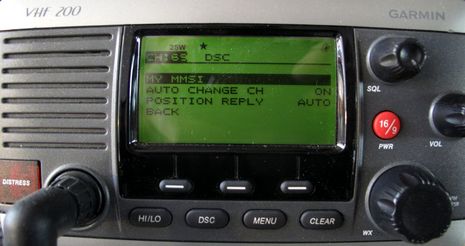 For instance, setting the Lowrance LVR-880 below to Auto means that it will acknowledge a direct DSC call and switch channels automatically (though you still have to hit Enter to stop the beeping). It has nothing to do with the automatic Channel 16 switch when receiving a Distress Alert (though you can turn off DSC altogether). But professional users like Milton don’t need Individual calls interfering with critical operations either, and I’m afraid lots of regular VHF users will turn off all auto channel switching as the Alert gets around. I wish the USCG had suggested that the typical wheelhouse with two or more VHF sets designated one for auto switching (except when there’s a plague of false alarms), but I guess they needed to make the Safety Alert short and simple…
For instance, setting the Lowrance LVR-880 below to Auto means that it will acknowledge a direct DSC call and switch channels automatically (though you still have to hit Enter to stop the beeping). It has nothing to do with the automatic Channel 16 switch when receiving a Distress Alert (though you can turn off DSC altogether). But professional users like Milton don’t need Individual calls interfering with critical operations either, and I’m afraid lots of regular VHF users will turn off all auto channel switching as the Alert gets around. I wish the USCG had suggested that the typical wheelhouse with two or more VHF sets designated one for auto switching (except when there’s a plague of false alarms), but I guess they needed to make the Safety Alert short and simple…
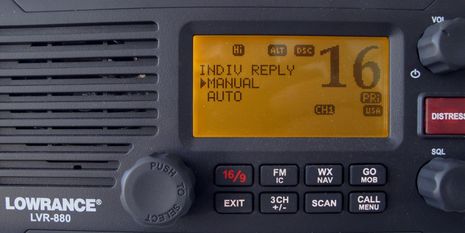 At any rate, the USCG list of VHF
At any rate, the USCG list of VHF
manufacturers who offer at least some models that lack the ability to
turn off Distress channel switching (PDF downloadable
here) does contain some hope for a less messy DSC future, an extract from some new standards:
ETSI EN 300 338-3 V1.1.1 (2010-02), from Section 6.9.2.1: If the equipment is engaged on a call and a DSC call is received with a higher priority than the current call the equipment will display the call information of the new call and present the operator with the following options: a) accept the call; or b) log the call. A discrete audible alarm will sound. The radio will not change to any channel specified in the new call unless the operator manually accepts the new call.
But it will take a long time for new DSC standards to become common. In the meantime, it seems to be a technology that’s hard to use and little used, and now it turns out that one of its primary safety features is a hazard to some commercial vessels. Is that depressing, or do I just have the Monday morning blues?



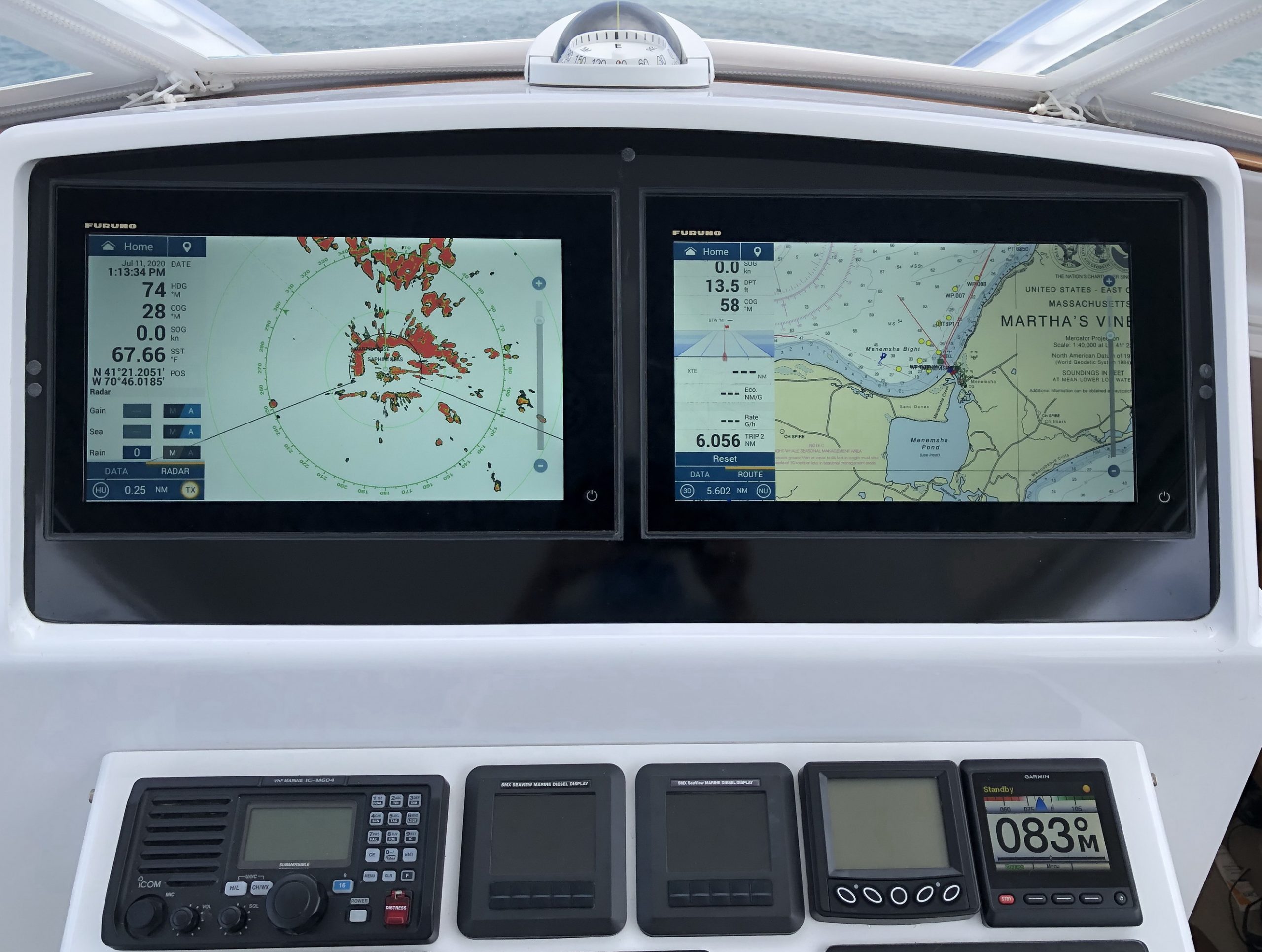
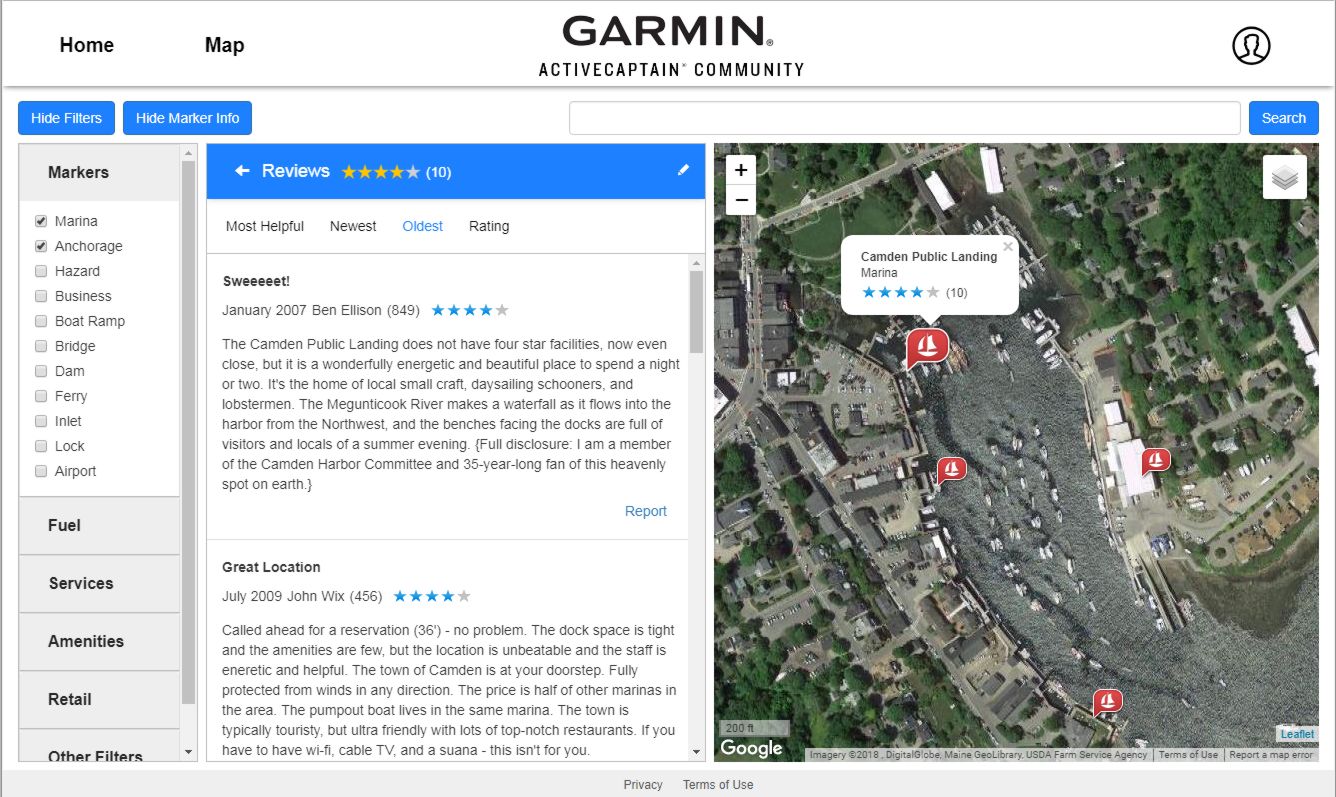

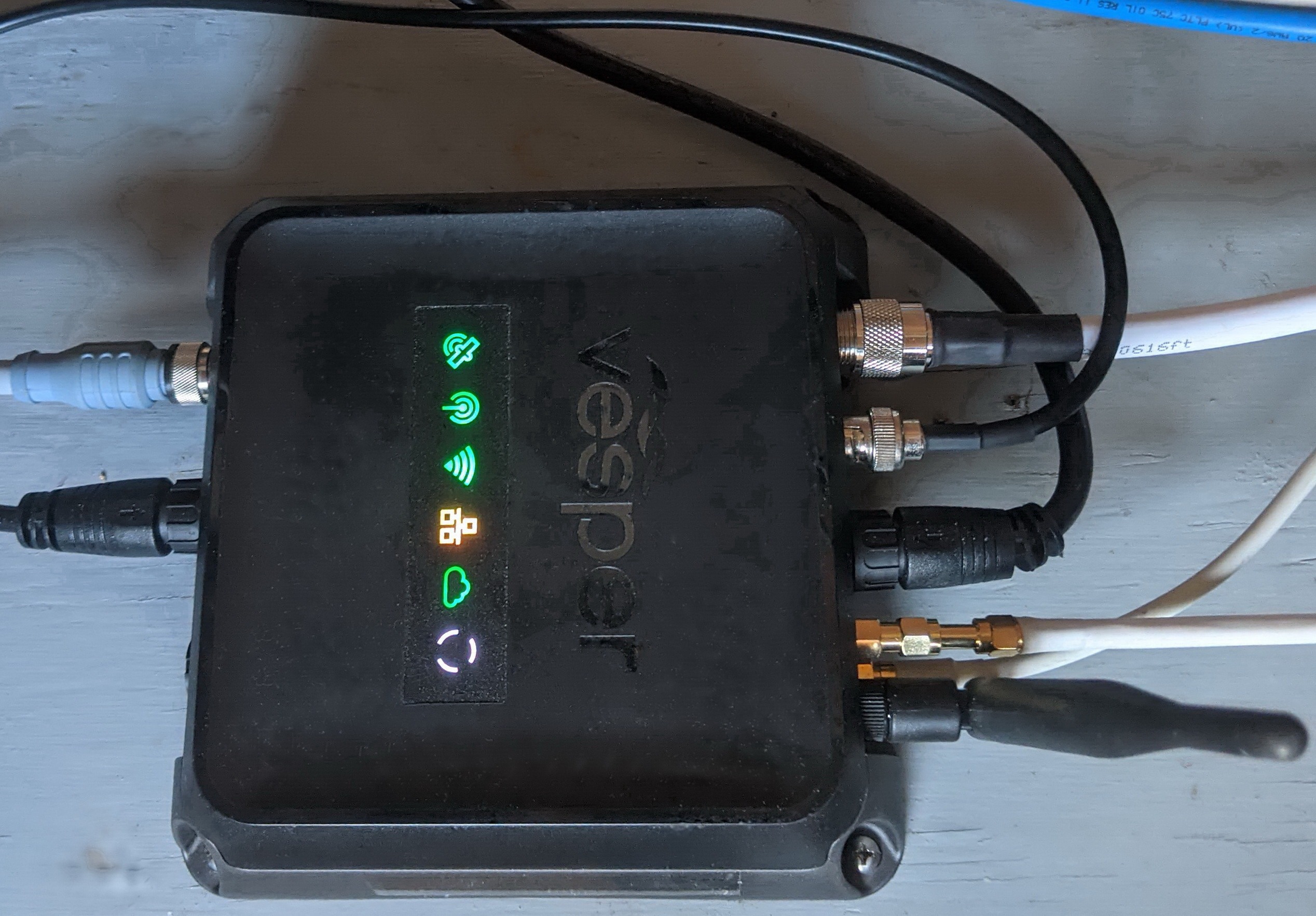







Ben, Thats a European only standard and has been effectively implemented in a lot of european radios to date. In my case the radio only switches when I ack the call not before.
Dave
Ben
Thanks, as always, for writing about these issues. The automatic switching did seem to be a great safety feature of the DSC. However, for every action there is an equal and opposite reaction.
After seeing the scenario played out as to its potential pitfalls, it makes sense.
An Automatic switching is great for those who do not know how to respond to the alerts. However, it can cause problems for those who are more experienced radio users.
I do like (and can now see why) the idea of systems that do not switch you over without your approval. As you noted this will take time for the standards to change.
This should not be depressing but uplifting that the technology isn’t going away, but will be refined so that it works better for everyone.
Thanks again for all you do for us out here in cyberland!
Frustrating, sure. But anytime you have a device try to out think its operator, this is the kind of complexity likely to arise. I would also argue that the problem here is not the technology or politics, but simply the crying of “wolf”. I think it is practically impossible to design any kind of system that could withstand surplus false alarms without leading to reduced attention to legitimate distress calls by some means or another.
I would like to think this would only effect busy harbors, but I imagine once auto-switch is disabled, radios will remain that way for the duration until crew hear a distress beep and think to reenable. Let’s hope there’s time for at least one more distress call.
Maybe they should build in a digital record so they can play back the distress call once they are able to change channels.
The issue I think is that EVERY DSC radio in range is auto-switching to a new channel. These are folks who are unlikely to be so close to the accident that the auto-switch is useful in saving time, and this is ABSOLUTELY disruptive to normal ship board operations.
All the alarms, and whooping and beeping is so annoying.
On an alert the radio should chirp or similar and then, if the user wishes, the user should be able to switch to indicated channel.
The first thing people ask me if I actually start trying to use DSC to communicate with them is how to turn off all the ringing and alarming.
This tells me that A) DSC calls are very rare B) The user interface is still very unpleasant.
Give me the nextel beep or similar. Users would quickly understand that means an incoming DSC call.
The possibility of automatic channel switching interrupting communications was recognized back in 2002 – that’s why the standards have been modified to allow such switching to be disabled.
http://www.tc.gc.ca/eng/marinesafety/bulletins-2002-04-eng.htm
This is a slightly disappointing step back, although I can see what prompted it.
I have to say though, that it doesn’t seem to matter here in the Pacific Northwest.
I spent three months cruising last summer on my sailboat between Seattle and the Canadian Gulf Islands and although I monitored several saftey situations including the loss of a boat, there was only one occasion the entire three months where the (Canadian) coast guard (or anyone else) triggered the DSC system.
It actually took me a minute or so to figure out what was going on :).
I would be happier if I heard the DSC system going off more often, so I know I am not missing an situation I should be aware of.
Evan
If a user shuts AUTO (channel switching) off, how does that affect the red distress button functionality? E.g. will the radio still switch to 16 for the user who pressed the distress button?
Hope? I believe you wrote about a vendor who has quite a bit of integration between the radio and the chartplotter, including the ability to click on an AIS contact and have the VHF call the associated MMSI number. I believe there was an address book of boats & MMSI numbers from which a call could be initiated as well. This kind of user frindly interface may be the only future for widespread adoption of DSC calling. Perhaps the kind of functionality where the chartplotter controls the VHF radio can bring us functions to overcome various issues around this, as well as replace the annoying alert with “a chirp” as John D suggested?
I have to admit about 3 years ago when I got my
1st DSC call I was not sure what was going on. However since then I have only heard the alert used 3 times in all cases the unit sending the alert had no programmed information MSSI or position data.
Since upgrading to an all NMEA2000 network I have used the feature through my chart plotter to verify a vessel could see me on their AIS transponder. the system has worked flawlessly. It is also extremely easy to use. However pre NMEA2000 it was a pain to use. The GUI has gotten easier to use with every software upgrade, meaning the
Garmin plotters controlling and recording the AIS transponders data and VHF200
radios.
Bill Lentz
Thank you for writing about this issue, which has been bothering me for quite a while as well. As I mulled over it though, I guess there’s some good that can come out of it. It will take some getting used to, but I’m confident the technology will adjust to this change and will be more refined; in other words, it doesnt Cheers!